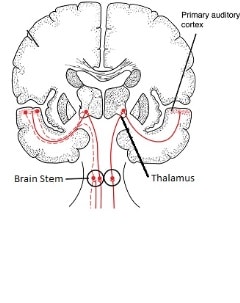Living in and near Air Force bases most of my life, my daughter’s favorite saying was “Jet Noise, the sound of Freedom.” We all had the  bumper stickers on our cars, especially during those times when certain politicians wanted to dismantle some of our larger bases, we let them all know that the sound of jet noise was music to the ears of every patriotic American in the world. We also knew that exposure to jet noise leads to hearing loss. All those troops, regardless of which branch they served in, who were exposed to jet noise either on flight lines, in combat, or just sitting in their offices under the path of the planes know all too well the results of the sound of freedom.
bumper stickers on our cars, especially during those times when certain politicians wanted to dismantle some of our larger bases, we let them all know that the sound of jet noise was music to the ears of every patriotic American in the world. We also knew that exposure to jet noise leads to hearing loss. All those troops, regardless of which branch they served in, who were exposed to jet noise either on flight lines, in combat, or just sitting in their offices under the path of the planes know all too well the results of the sound of freedom.
New studies have shown that it isn’t just the noise that has affected our troops hearing, it is also the fumes from the fuel. According to studies done by the Center for Disease Control (CDC); JP-5, JP-8, and Jet A fuels, those commonly  used in commercial and military aircraft, are responsible for a myriad of health concerns, including hearing loss. While the fuel alone isn’t responsible for hearing loss, the combination of noise and fuel exposure increases the rate of hearing loss substantially over that of just noise exposure. The VA has also been conducting studies and is finding similar results. The problem is not that the fuel actually causes damage to your ears, but that it causes neurological problems in the brain that prevent the brain from deciphering what the ears hear into understandable language. When combined with noise exposure, the risk increases greatly. The study the VA has used worked mainly with JP-8 fuel and showed definitive links to auditory processing dysfunctions among those who had exposure to the fuel.
used in commercial and military aircraft, are responsible for a myriad of health concerns, including hearing loss. While the fuel alone isn’t responsible for hearing loss, the combination of noise and fuel exposure increases the rate of hearing loss substantially over that of just noise exposure. The VA has also been conducting studies and is finding similar results. The problem is not that the fuel actually causes damage to your ears, but that it causes neurological problems in the brain that prevent the brain from deciphering what the ears hear into understandable language. When combined with noise exposure, the risk increases greatly. The study the VA has used worked mainly with JP-8 fuel and showed definitive links to auditory processing dysfunctions among those who had exposure to the fuel.
How the Brain Translates Sound
The sound we hear is captured by the ears and the ears then send electrical signals to the auditory nerve. These impulses are then transferred to the auditory center of the brain. When the auditory center of the brain is triggered, several groups of neurons receive the impulses and translate them into language that our brains understand. This translation allows us to consciously perceive the sounds that we hear. There are three main auditory pathways the impulses must travel through for complete translation. First is the brain stem. This is the area at the bottom and back of our brains that controls our basic functions of the body such as breathing, heart rate, consciousness, and links the rest of the body’s nerve system to the brain. 
The next part of the translation occurs in the thalamus. The thalamus is a part of the brain that is responsible for sensory perception and movement. It regulates our body’s voluntary motor control, our sleep/wake cycles, and our senses of sight, sound, taste, touch, and where we are in our environment or our perception of the space around us. It tells us that the chair is right there and if we sit 3 inches to the left we will miss it and fall to the floor.
The final translator is the auditory cortex. At this point, the messages we have heard have already been mostly translated but the auditory cortex finalizes the process, stores what we have heard into our memory and formulates a response, be it language or action.
How Jet Fuel Disrupts Sound Translation
The study of JP-8 showed distinct brainstem dysfunctions after exposure, causing impulses from the ears to not be transmitted properly to the next step in the auditory pathway, therefore causing the brain to be unable to translate what the person hears. Unfortunately, when people affected by this issue take a hearing test, they pass, because they can hear. What they can’t do is translate the language. So they know something is wrong with their hearing but they are not able to explain correctly what exactly is wrong. It is similar to dyslexia, the eyes can see the letters but the brain translates the images in a different order. Someone with dyslexia may see:
which makes it very difficult to read properly. The effect that jet fuel has on the hearing is very similar in the effect of translation.
If you were exposed to jet fuel and are having problems understanding when someone speaks, inform the VA that you need to speak to someone about hearing loss and explain to them about your exposure. Understand that you may need to inform your audiologist about the study and ask them to research it and possibly refer you to someone who has done research on this issue and can evaluate your issue taking your exposure issues into account.




